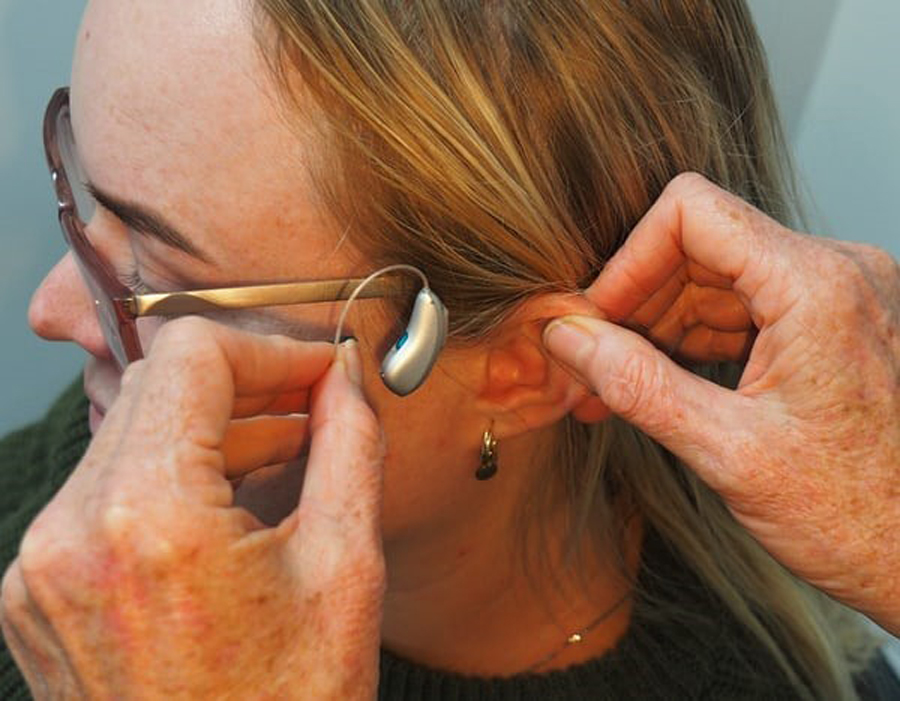Hearing impairment is classified as partial or complete inability to hear sounds. Sounds are everywhere and some of us take them for granted, completely disregarding the fact that they have a great impact on our quality of life. Luckily there is a solution for people that suffer from some sort of hearing impairment – hearing aids.

Treat the aid with care
It goes without saying that you should treat your hearing aid with as much care as you would your smartphone. The hearing piece can take a few knocks here and there, but, if you repeatedly subject it to damage, you are likely going to end up buying a new one quite fast.
As with any electronic device, lifespan isn’t measured by age but rather by time spent using it. If you aren’t particularly in a situation that requires a hearing aid, take it off and turn it off. To add to that, try to be mindful of where you place your hearing aid once you take it off for the night. Look for a place where it can’t fall a great height, like on a bed with cushions that can even dampen the fall if it occurs. This way, you can get the most out of your hearing helper.
Hygiene is crucial
The ears are very sensitive and require complete cleanliness on your part in order to avoid germs spreading from your hands to your ears which can later cause ear infections that can even further hinder your hearing.
Excess moisture can damage the hearing aid, so, at the end of the day, get a nice dry soft cloth and wipe all the sweat that made its way over there. If you are struggling to clean the hearing aids properly, the right gear must be procured. А well-equipped hearing aid store will cater to all of your hearing-aid-related questions and services. If your aim is to keep your hearing aid crisp and crystal clear, gear and equipment crafted by professionals is the way to go.
Moisture and humidity precautions
As mentioned above, hearing aids suffer the most from humidity and moisture. If you’re using a hearing aid while you are in a steamy sauna, it can be torture for the device that allows you to enjoy sounds. Investing in a dehumidifier can significantly extend the life of the hearing aid. After taking it out, simply place it in the dehumidifier and it will be free of moisture and ready for use the next day.
Furthermore, protective covers are a great way to prevent exposure to extreme weather conditions and moisture. It’s worth mentioning that hearing aids should never be left out in the open especially under the scorching sun as you can be deprived of your hearing aid within hours.
It goes without saying that showers with hearing aids are a recipe for disaster. Before you enter the shower, be sure that you have removed and turned it off so that the water can’t damage your hearing aid.
Get rid of ear wax
With use, ear wax is gathered and the performance of the hearing aid can be impaired. Clean your ears and hearing aids regularly but do it wisely. Use a soft dry cloth to wipe the hearing aid softly after each use and absolutely avoid cotton swabs if you are already suffering from hearing loss. Cotton swabs are known to push ear wax further down the ear canal and cause blockages which further hinder your ability to hear.
In addition to that, regular replacement of the ear wax guard will assure that the microphone and the receiver are not clogged up with dust and wax, ensuring that their functions are not impaired.
Get a protective case
If you plan to visit the beach, a protective case can save you loads of unwanted encounters with sand. We advise against keeping your hearing aids in your pockets or in your bag as the constant movement causes knocks and vibrations that ultimately can lead to permanent damage to the aid that provides you with the ability of hearing.
Check the batteries
Batteries are the fuel to your hearing aid. You should always replace batteries regularly so that you don’t see any performance dips regarding your hearing aid. Batteries should last for a couple of weeks but of course, it will all depend on the usage of the hearing aid.
It’s worth mentioning that these aids use specialized batteries that are specifically designed for them, so don’t try your luck with normal batteries.
Troubleshooting
If the aid is not performing quite right, don’t panic. If a loud static noise is being produced, this might mean that moisture got near the batteries. Start by gently removing them and insert a fresh new pair. If a squealing noise is being produced, then this is a sign of built-up ear wax. Follow the guide we provided above in the text so that your hearing aids are always squeaky clean.
Regular check-ups
Regular visits to the doctor will provide you with general information about the state of your hearing and in addition to that, the doctor can check whether your hearing aid is working properly. Hearing impairment must be taken extremely seriously. Improper treatment and poor maintenance of your hearing aid can result in serious consequences.
To sum it up
When handling hearing aids, you should always be gentle so that any damage is avoided. Personal hygiene and hygiene of the hearing aid will greatly boost its lifespan of it. Be wary of where you leave your hearing aids about as they are sensitive to moisture and humidity. Get a protective case if you are on the move and always check the batteries’ function. Regular checkups will provide you with a general idea of whether the hearing aid is properly working. We hope that you enjoyed our article and we hope that we have helped you shed some light on the mystery that are hearing aids.
Comments
comments